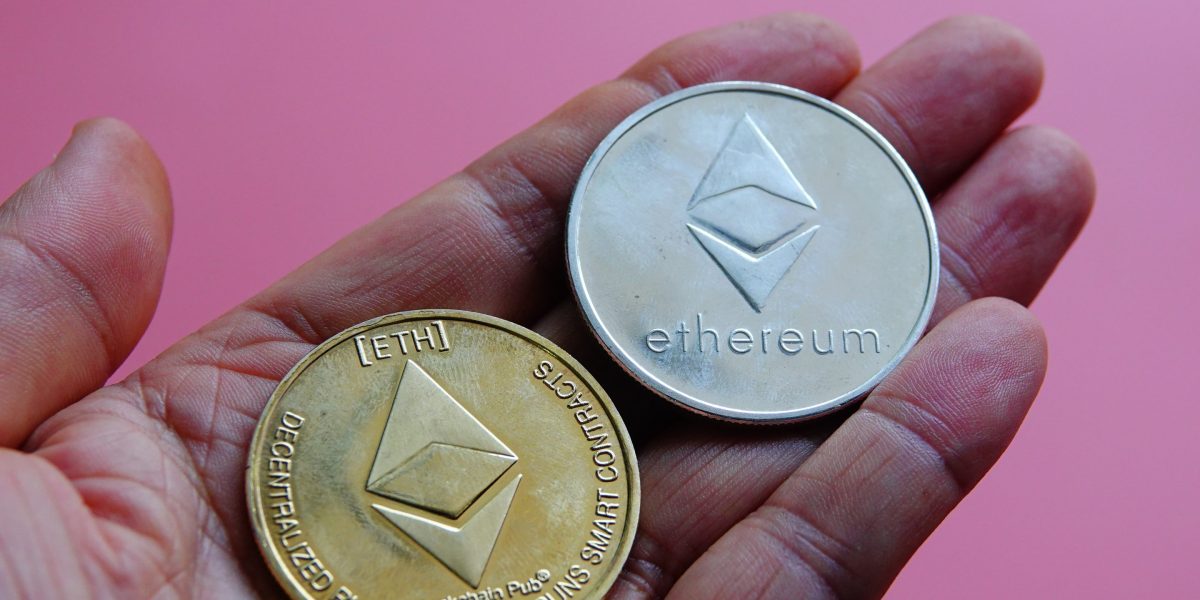Ether is the native cryptocurrency of the Ethereum blockchain. Despite the SEC's reservations, Ether is legally considered to be a commodity

With eight asset managers filing for approval to launch spot Ether ETFs, here’s a quick guide to the instruments and what they mean for investors and the crypto market at large.
What is a spot Ether ETF?
Ether is the native cryptocurrency of the Ethereum blockchain, and while the SEC has expressed reservations, Ether is legally considered to be a commodity, and the corresponding ETFs will be securities.
ETFs, which were first introduced in 1993, pool together a basket of securities, such as a handful of different energy stocks, and their price aligns with the indexes that it tracks. They are listed on exchanges and can be traded during market hours, thus operating like stocks.
Spot Ether ETFs will track the spot—or current—price of Ether. The products give investors access to the underlying crypto without the need to own a crypto wallet. The ETFs will be set up as grantor trusts, meaning investors will own a share of the Ether held by the trust.
Who issues them and what are the fees?
Eight asset managers are proposing to offer Ethereum ETFs: BlackRock, Ark Invest/21Shares, VanEck, Grayscale, Fidelity, Bitwise, Franklin Templeton and Invesco/Galaxy Digital. Each instrument will be near-identical, so the fees charged to investors are competitive. For now, we know that Franklin Templeton will charge 0.19%, VanEck at 0.20%, and Invesco and Galaxy Digital will charge a 0.25% fee for its jointly filed ETF.
The full list of fees will be revealed when the final registration statements, or S-1s, are submitted to the SEC. This will be on Tuesday, if trading begins for all eight.
Where can I access them?
They will be listed on the Nasdaq, Chicago Board Options Exchange (CBOE) and New York Stock Exchange.
Why would someone buy an Ethereum ETF?
Bitcoin and Ether tokens both represent units of ownership—and thus value—of an underlying blockchain. But beyond that, they are very different.
Whereas Bitcoin may be a long-term hedge against inflation, Ethereum is closer to a tech investment. The blockchain’s main premise is “to remove the intermediary and allow for 24/7 uptime in financial services, such as trading and lending, in addition to tokenization, digital collectibles, and digital identity,” Vetle Lunde, senior analyst at K33 Research, told Fortune.
While for now crypto markets are tightly correlated, this may not always be the case, he adds. So, Ether ETFs allow investors to diversify which corners of the crypto economy they want to invest in.
Will their popularity match the spot Bitcoin ETFs?
Demand for the funds will be 20% that of the spot Bitcoin ETFs, James Seyffart, Bloomberg’s ETF analyst, told Fortune. This prediction is because the market capitalization of Ether is about one-third of the size of Bitcoin. Plus, he adds, the ETFs will lack a key benefit of holding Ether: Investors will not be allowed to stake, which generates yields. But, even at this smaller size, they would be “extremely successful” by any ETF launch standard, says Seyffart. Similarly, K33 Research predicts that during the first six months of trading, inflows will be $4 billion—a quarter of the spot Bitcoin ETFs.
When judging their success, it’s key to evaluate performance after six months of trading, rather than simply on “game day” and the initial weeks, Leah Wald, CEO and president of Cyberphunk Holdings Inc., told Fortune. Launching in summer, they’re coming to market when trading is typically “more muted,” she points out. Plus, success should also be judged on volume and spread, rather than simply inflows, as the health of these metrics foreground AUM growth down the line, she adds, as investors feel safe allocating dollars into these new securities.
Who will be investing in them?
Both institutional investors, such as hedge funds, pension funds, banks and endowments, will be able to access the instruments. Retail investors will also be able to buy them, either directly or through portfolio allocations via wealth advisors. The latter group will likely dominate the first six months of trading, as the Q1 13Fs for the spot Bitcoin ETFs reveal that over 80% of total AUM was from non-professional investors.
How will the ETFs impact the crypto market?
6か月で40億ドルの流入というK33の予測が正しければ、現在の価格で流通しているイーサの1%が年末までにETFに吸収されることになる。ルンデ氏は、この吸収は今年下半期にイーサの価格を強化するのに「良い位置にある」と述べています
この資金流入は、より広範な市場にとっても強気となるだろうと歴史が示唆しています。 ETFを介してビットコインに流入した新たな資金により、仮想通貨の時価総額は20年間で46%上昇しました
The above is the detailed content of Ether Spot ETFs: Everything You Need to Know. For more information, please follow other related articles on the PHP Chinese website!




